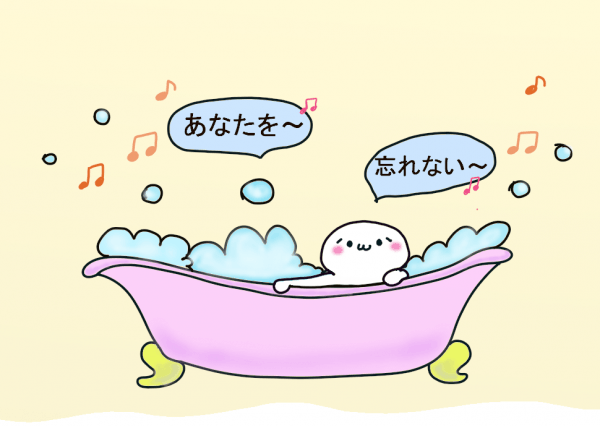While A, B
Both actions A and B are occuring at the same time. Emphasis is placed on the second action (B) in the sentence.

私は歌い乍らお風呂に入った。
I sang while I took a bath.
70
本を読みながら彼女を待ちます。
I wait for her while I read a book.
5
32
凄い!田中さんはジャンプを為ながら歌います!
Wow! Mr. Tanaka is jumping while he sings.
2
50
車を運転しながら携帯電話を使わないで下さい!
Please don't use a cellphone while driving!
0
41
お母さんは何時も朝ご飯を食べながらテレビを見ます。
My mom always watches TV while she is eating breakfast.
2
27
毎晩、テレビを見ながら、夕食を食べます。
Every night I eat dinner while watching TV.
0
11
山川さんはテレビを見ながら家族と話して居た。
Mr. Yamagawa was talking to his family while he watched TV.
0
23
お八つを食べながら本を読むのは平気ですか?
Is it cool if I read a book while I have a snack?
0
20
余りの痛さに、唸りながら泣いた。
Because of all the pain, I cried while I moaned.
0
2
買い物を為ながら友達と話しました。
I was shopping and talking to friends.
0
1
ご飯を食べながら遊ばないで下さい。
Don't play while you eat.
0
0
父は怒りながら話しました。
Dad got angry as he talked.
0
Getting the sentences
Construction
(Elements in parentheses are optional.)
Basic Examples:
食べながら話す (talk while eating)
歩き乍ら口笛を吹きます (whistle while walking)
The verb in A is made by adding ながら to the stem form (ます-form).
Basic Examples
まちます まちながら
つくります つくりながら
します しながら
Similar grammar
~ながら's meaning/usage is very similar to ~間. While ながら requires the subject/actors in the first and second half of the sentence to be the same thing, 間 does not have this restriction.
Related Expressions
つつ/つつも
最中
最中
Where this grammar is found
Advanced notes
一
The same subject must be perfoming both actions; there cannot be a different subject for A and B.
私は彼女を待ち乍ら本を読みました。(correct)
I read a book while I was waiting on the girl.
私は彼女を待ち乍ら男の子は本を読みました。(incorrect)
私が彼女を待つ間、男の子は本を読んだ。(fixed)
The boy read a book while I was waiting for the girl.
The grammar structure ~間/あいだ means the same as ~ながら, but A and B can have different subjects.
二
This structure can be used with verbs A that span a long period of time.
父は、奨学金を貰い乍ら、大学に通いました。(correct)
My father got a scholarship to go to college.
母は、4人の子を育てながら、常勤で働いて居ます。(correct)
My mother works full time while raising four children.
三
Verbs that are continuous or which indicate actions/effects over a period of time can be used for A.
Basic Examples
書く(to write)
読む(to read)
待つ(to wait)
使う(to use)
歌う(to sing)
洗う(to wash)
四
Verbs that are one-time/instantaneous cannot be used for A
Basic Examples
壊れる(to break,intransitive)
死ぬ(to die)
開く(to be open)
始まる (to begin)
Grammar usage notes
Generally speaking, in this construction the more 'important' action is the latter of the two, and the lesser one is the former: for example 電話で話しながら仕事をする talk on the phone while doing work - doing work is more important, talking on the phone is what's going on during the other action.
here are some set Phrases that use ながら with them
おそれながら・怖れながら=let me say humbly
はばかりながら・憚りながら=with all due respect
ざんねんながら・残念ながら=im afraid to say that
はずかしながら・恥かしながら=i am ashamed to say that
おそまきながら・遅まきながら=belatedly
さしながら=nevertheless
とは言いながら=with these words
おそれながら・怖れながら=let me say humbly
はばかりながら・憚りながら=with all due respect
ざんねんながら・残念ながら=im afraid to say that
はずかしながら・恥かしながら=i am ashamed to say that
おそまきながら・遅まきながら=belatedly
さしながら=nevertheless
とは言いながら=with these words
verb stem (ます-form without ます) + ながら
(ex) ジャンプをします → ジャンプをしながら
(ex) ジャンプをします → ジャンプをしながら
Questions/Discussion
Nothing posted yet!